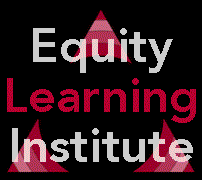
|
|
|
|
an EdChange project by Paul C. Gorski
|




|
Exploring Language: Definitions Activity
For this exercise, participants are asked to find definitions for prejudice, discrimination, racism, sexism, and homophobia. Definitions for each word should come from two sources: the person's existing understanding and a scholarly source. Objectives:
The facilitators should divide the participants into groups of 6-10 to ensure that everyone will have ample chance to participate. Each group's facilitator will begin by having each participant share a definition for "prejudice". The group will proceed with the rest of the definitions attempting, if possible, to reach a consensus on one definition for each word. (Rarely will the group agree on one definition.) All definitions should be discussed. When small groups are finished, bring everyone back together for a final discussion. Facilitator Notes: (1) Definitions
(3) According to the some definitions, anyone can be racist or sexist. It is vital to bring the issue of power and accumulative impact of advantage and disadvantage into the discussion in order to distinguish individual acts of racial discrimination, for example, from racism as a bigger condition. It's important to differentiate between an individual-focused basis of "racism" and an institutional-focused basis. (4) Some people might not be familiar with the term "heterosexism." Ask students to consider the "phobia" framing of the more common term, "homophobia." This can lead to other strands of discussion, such as who has power over language, the evolution of language, and so on. (5) Spend a lot of time on power. Many participants will have a hard time understanding it. Talk about individual acts of racism, which may done by anyone, as opposed to institutional racism, which involves economic, class, and social factors which all add up to power. Some groups in the U.S. do not have the political, economic, or social power to oppress on an institutional level. It is important to acknowledge that we all have personal power and how we exercise it is important. Do we stand up for the right things? Who gets to make the rules and who do those rules benefit (this is a question of institutional power)? (6) The major point of this activity is to get people talking about these terms and realizing that different people mean different things even though they are using the same words. How does the way we are socialized to relate to these terms inform the ways we feel they might be solved? (7) Mention how, when we don't know the meaning of a word, we go to the dictionary and accept its definition as truth. Challenge people to look up definitions for "black" and "white" and notice the connotations.
[ Return to the Awareness Activities Page ]
|